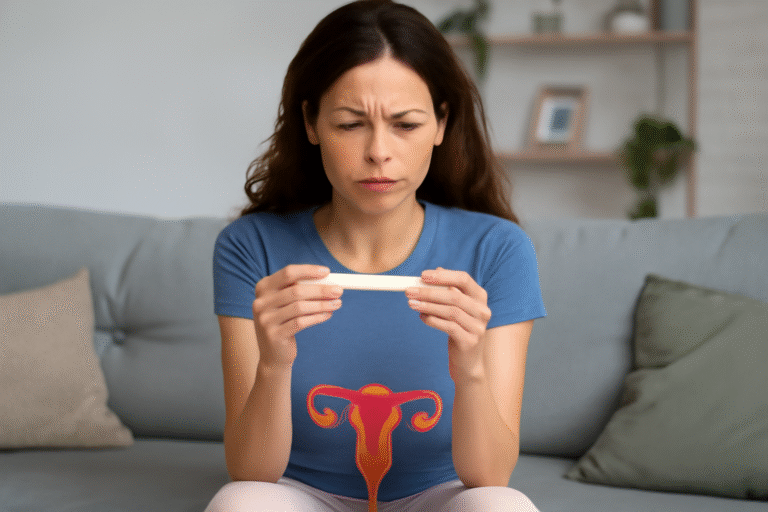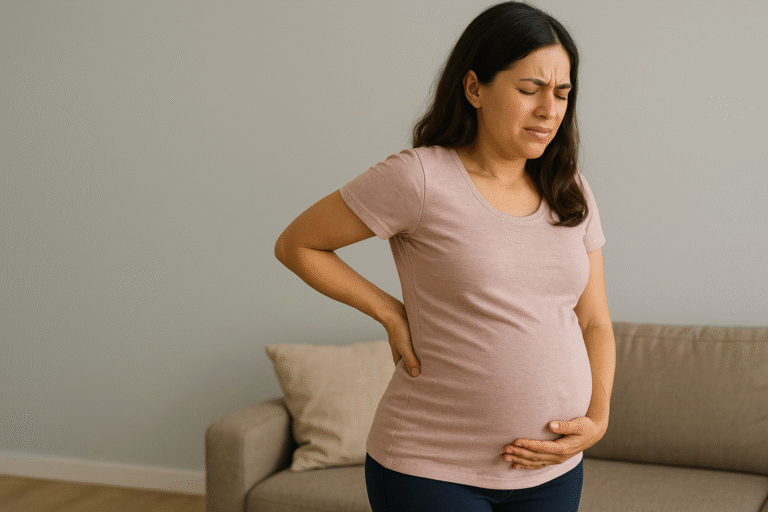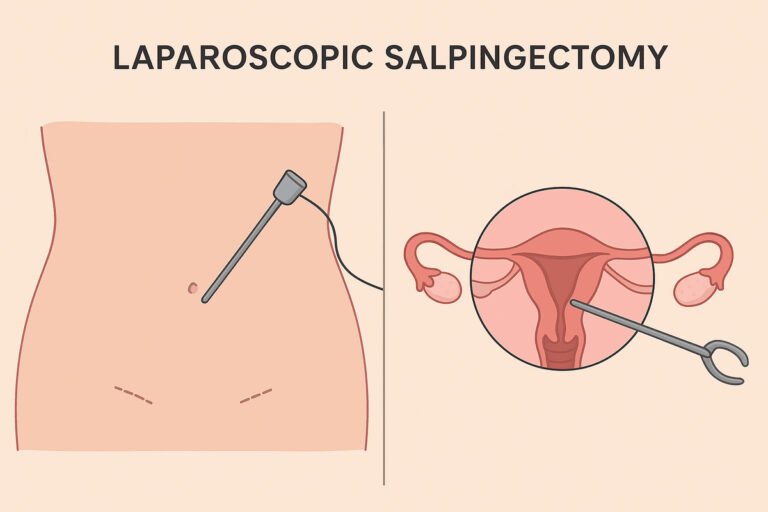Introduction
Food poisoning during pregnancy can be scary, but understanding its causes, symptoms, and preventive measures can help keep you and your baby safe. Pregnant women are more vulnerable to infections, making it crucial to take extra precautions with food choices and hygiene.
Also read: Best Exercises to Improve Male Fertility and Sperm Quality
What is Food Poisoning?
Food poisoning occurs when you consume contaminated food or drinks, leading to symptoms like nausea, vomiting, diarrhea, and stomach cramps. It is usually caused by bacteria, viruses, parasites, or toxins in food. While most cases are mild, severe food poisoning can have serious health implications, especially during pregnancy.
Why Pregnant Women Are More Susceptible to Food Poisoning
During pregnancy, the immune system is slightly suppressed to protect the growing baby. This makes pregnant women more prone to infections, including foodborne illnesses. Additionally, some bacteria like Listeria can cross the placenta, posing risks to the baby.
Hormonal changes during pregnancy can also affect digestion, slowing down the movement of food through the gut. This provides more time for harmful bacteria to multiply, increasing the risk of food poisoning.
Common Causes of Food Poisoning During Pregnancy
Bacteria
- Salmonella: Found in raw eggs, poultry, and contaminated produce. It can cause severe stomach cramps, diarrhea, and fever.
- Listeria: Found in unpasteurized dairy products, deli meats, and soft cheeses. Listeria infections can lead to miscarriage or stillbirth.
- E. coli: Found in undercooked beef and contaminated vegetables. It can cause severe diarrhea and kidney complications.
Viruses
- Norovirus: Common in contaminated water and raw shellfish. It spreads easily and causes vomiting and diarrhea.
- Hepatitis A: Transmitted through contaminated food and water. It can cause liver inflammation and jaundice.
Parasites
- Toxoplasma gondii: Found in undercooked meat and unwashed produce. It can cause congenital disabilities if transmitted to the baby.
Chemical Contaminants
- Pesticides and toxins can sometimes contaminate food, leading to poisoning. Avoiding non-organic produce with high pesticide levels can help reduce risk.
Symptoms of Food Poisoning in Pregnancy
- Nausea and vomiting
- Diarrhea
- Stomach cramps
- Fever
- Muscle aches
- Dehydration (dizziness, dry mouth, decreased urination)
Dangers of Food Poisoning for the Mother and Baby
Risk of Dehydration
Severe diarrhea and vomiting can cause dehydration, which is dangerous for both mother and baby. Staying hydrated is crucial to prevent complications.
Increased Risk of Preterm Labor
Some infections can trigger contractions and lead to premature birth, increasing health risks for the baby.
Developmental Issues in the Baby
Certain bacteria, like Listeria, can cause miscarriage, stillbirth, or birth defects. This makes food safety a top priority during pregnancy.
Foods That Commonly Cause Food Poisoning
- Raw or undercooked meat (especially poultry and beef)
- Unpasteurized dairy products (milk, cheese)
- Raw seafood (sushi, oysters)
- Contaminated fruits and vegetables (unwashed produce)
- Deli meats and soft cheeses (can harbor Listeria)
How to Prevent Food Poisoning During Pregnancy
Proper Food Handling and Storage
- Keep raw and cooked foods separate.
- Store perishable foods at the correct temperature.
Safe Cooking Practices
- Cook meat thoroughly (use a food thermometer).
- Avoid raw eggs.
Avoiding High-Risk Foods
- Skip sushi, raw dairy, and deli meats unless heated thoroughly.
Good Hygiene Practices
- Wash hands and kitchen surfaces regularly.
- Rinse fruits and vegetables before eating.
When to See a Doctor
Seek medical attention if you experience severe symptoms like:
- High fever
- Persistent vomiting
- Signs of dehydration
- Blood in stool
- Reduced fetal movement
Treatment for Food Poisoning During Pregnancy
Hydration and Electrolyte Balance
Drink plenty of fluids, including electrolyte solutions, to prevent dehydration.
Safe Medications
Consult your doctor before taking any medications, as some may not be safe during pregnancy.
Home Remedies
- Sip on ginger tea to ease nausea.
- Eat bland foods like toast and rice.
How Long Does Food Poisoning Last?
Most cases resolve within 24-48 hours, but severe infections may last longer and require medical treatment.
Differences Between Food Poisoning and Morning Sickness
- Morning sickness: Happens mostly in early pregnancy, doesn’t usually cause fever or diarrhea.
- Food poisoning: Can happen at any time, often accompanied by diarrhea and fever.
Tips for a Healthy Pregnancy Diet
- Eat a balanced diet with plenty of fruits, vegetables, and lean proteins.
- Stay hydrated.
- Choose pasteurized dairy products.
Conclusion
Food poisoning during pregnancy can be dangerous, but with proper food safety measures, you can significantly reduce the risks. Always be cautious about what you eat and seek medical help if symptoms become severe.
FAQs
1. Can food poisoning harm my baby during pregnancy?
Yes, certain foodborne illnesses like Listeria and Salmonella can cross the placenta and affect fetal development, increasing the risk of miscarriage, stillbirth, or birth defects. It’s important to take food safety seriously during pregnancy.
2. How can I tell if I have food poisoning or just morning sickness?
Food poisoning often comes with diarrhea, fever, and stomach cramps, whereas morning sickness is typically limited to nausea and vomiting without fever or diarrhea.
3. What should I do if I get food poisoning while pregnant?
Stay hydrated, eat bland foods, and rest. If symptoms are severe or persist, contact your healthcare provider immediately to prevent complications.
4. Can I take medication for food poisoning during pregnancy?
Always consult your doctor before taking any medications. Some anti-nausea or anti-diarrheal medications may not be safe during pregnancy.
5. How can I prevent food poisoning when eating out?
Choose reputable restaurants, ensure your food is fully cooked, avoid raw or undercooked meats and seafood, and always wash your hands before eating.





[…] Also read: How to Prevent and Treat Food Poisoning While Pregnant […]